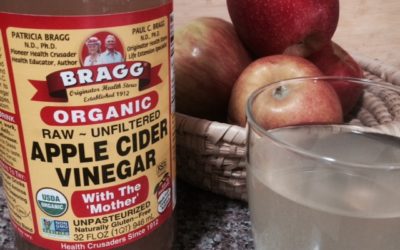There are a rising number of toxic chemicals in our environment and exposure to these chemicals impacts our long-term health. The origin of these toxins come from an array of sources including environmental exposure; such as the air we breathe, the food we eat, the water we drink, and medications. Once exposed, our bodies are responsible for transforming these toxic compounds into something that can be safely excreted through sweat, urine or feces. However; when the load of toxins reaches a certain threshold, it taxes the body’s resources and it has to work harder and harder to get rid of these compounds. Overtime this takes a toll on overall health and could lead to symptoms of fatigue, depression, rise in allergies, and even weight gain!
It’s impossible to get away from all environmental toxins, but it is very possible to minimize exposure in our everyday lives. In a previous post, I talked about ways you can reduce everyday toxins from your life, especially by way of diet. In this post, I would like to more specifically address cleaning products. It’s tempting to use the heavily marketed cleaning products on most grocery store aisle shelves, but the truth is, most of these products contain chemicals that are toxic to your cells and your bodies. Despite the very clearly labeled WARNING label, we tend to take these cleaning agents for granted and use them mindlessly for our day to day chores… But have you considered the consequence?
What if there were a better and more affordable way?! Would you give it a try?
The truth is, most cleaning products are very easy AND affordable to make! They take very little time and require simple, easy to find ingredients.
I would like to share some simple and effective cleaning solution recipes with you here. These recipes are for cleaning products that I use in my own home and recommend clients try for themselves.
Scrub for tub, basin, and toilet
- Put 1 cup baking soda into a glass jar
- Add 1/4 cup coarse sea or table salt
- Add 10 drops of lemongrass essential oil
- Shake to combine.
- Sprinkle on surfaces, scrub, and rinse. No need to wear gloves or use a protective mask while applying! Double recipe for twice the scrubbing fun.
Window Cleaner
- Use a 4 oz spray bottle.
- Add 1 tablespoon vinegar to bottle.
- Add 8 drops lemon oil.
- Fill the rest of the bottle with water, leaving room for the spray top.
- Shake and spray on mirrors, windows or other glass surfaces.
**Pro Tip: Recycle an old Windex bottle for this project and quadruple the recipe for longer use.
If you are interested in learning more about how to make your own cleaning products including the ones listed above, I invite you to check out the classes I teach at IMUA. Specially, I am teaching one at the end of this month where we explore how to make three simple household cleaners that you get to take home with you that day. Cost is only $5 but it could change the way you forever look at cleaning your home…
MAKING NATURAL HOUSEHOLD CLEANERS
Saturday, April 30th @ 11:30 am
Please call 808-521-IMUA (4682) to reserve your spot as seats are very limited!
Alternatively, if you want to do some more research and discover what products might be the safest from the store, check out the Environmental Working Group (EWG.org) website to see their recommendations and reports. You also might be interested in checking out a study performed by the EWG that identified over 200+ chemicals in the cord blood of newborn infants illustrating just how common these toxins are in our modern lifestyle.

